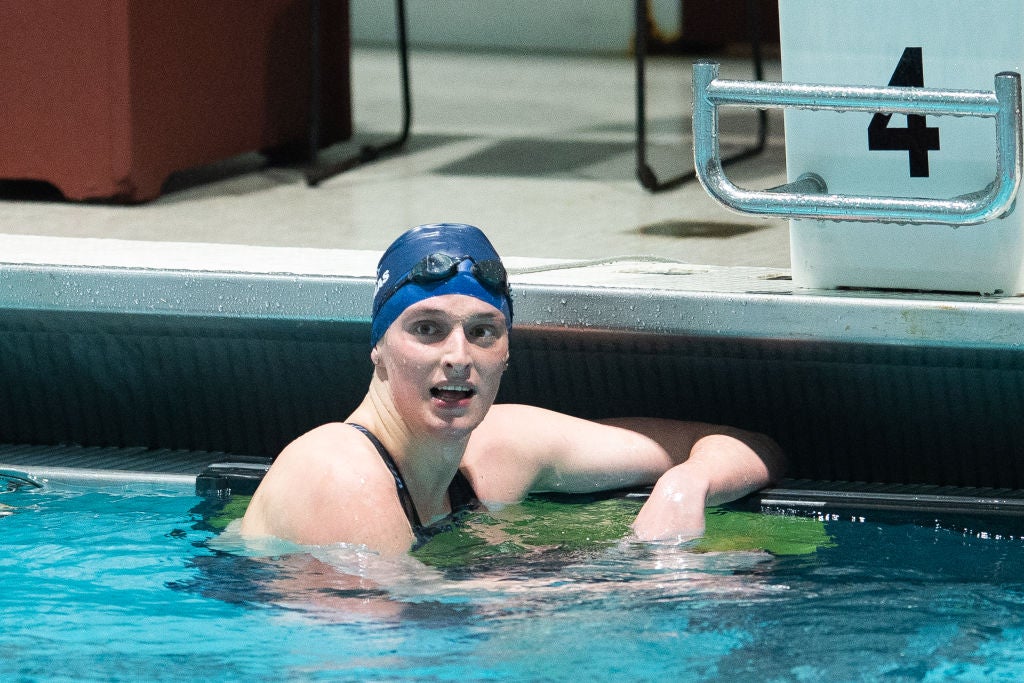ARTICLE AD BOX
Last month the Supreme Court ruled that the word “woman” in equality law does not apply to transgender women.
The five-judge panel ruled unanimously that the terms “woman” and “sex” in the Equality Act 2010 refer to a biological woman and biological sex, excluding transgender women with a gender recognition certificate.
While the Supreme Court judgement does not have any broader legal impacts, and does not apply to other pieces of legislation beyond the Equality Act, it has already resulted in political changes to trans women’s rights to use some women-only spaces and services.
Sport governing bodies are not obliged by the ruling to change their own gender eligibility rules.
But since the judgement several sporting governing bodies have changed their individual policies to fall in line, while others are embarking on independent reviews of their current policies.
Which governing bodies have introduced new policies since the Supreme Court’s transgender women ruling?
The Football Association (FA), Scottish Football Association (SFA), England and Wales Cricket Board (ECB) and England Netball have all banned transgender women from competing in the female category in the wake of the Supreme Court’s ruling.
Other governing bodies, including the World Professional Billiards and Snooker Association (WPBSA) and the organisers of the London Marathon, said they would review their policies in light of the judgement.
Here is a more detailed look at each sport’s stance:
Athletics
Seb Coe, president of World Athletics – which governs track and field – and one of the defeated IOC presidential candidates, has always taken a hard line on the exclusion of transgender women from the female category. He made protecting women’s sports a key part of his campaign for the top job.
World Athletics has banned athletes who have gone through male puberty from competing in the female category since 2023, and has previously gone to the Court of Arbitration for Sport (Cas) over DSD regulations.
The body announced in March it would introduce cheek swabbing to help determine if an athlete is biologically female, with PA reporting that it intended to have the testing in place before this September's World Championships in Tokyo, Japan.

Boxing
World Boxing announced in late March that it would release new gender eligibility rulings in “two to three weeks”, although they have yet to release this as of the time of writing. The organisation was founded in 2023 but has only recently assumed the mantle of the sport’s governing body, after the IOC granted it provisional recognition this February.
“The main objective is to have a level playing field that assures safety for all participants,” World Boxing president Boris Van der Vorst said. “We are waiting for the policy from our experts, but the priority for me is sporting integrity and safety.” He said advice from medical experts and the Independent Council for Women’s Sports would be taken into account.
Cricket
The England and Wales Cricket Board (ECB) changed its policy a week after the Supreme Court ruling to allow only biological women to play in women’s and girl’s cricket, with immediate effect. The new rule still permits transgender women and girls to play in open and mixed cricket.
The body noted that it would also study forthcoming guidance from the Equality and Human Rights Commission.
Cycling
British Cycling, which governs cycling within Great Britain, changed its policy in May 2023, having suspended all trans riders for a year while it undertook a review. It introduced an ‘Open’ category alongside a ‘Female’ category for competitive events.
Only those who were assigned female at birth and transgender men who haven’t started hormone therapy are eligible for the ‘Female’ category in competition. Trans and non-binary riders remain eligible for community rides, programmes and non-competitive events.
In July 2023 the Union Cycliste International (UCI), cycling’s world governing body, banned all transgender women who transitioned after puberty from competing in women’s events.

Football
The Football Association (FA), which governs all tiers of football in England, updated its policy following the Supreme Court ruling. Previously transgender women were allowed to participate in the women’s game – and the FA reiterated this stance a little over a month before the ruling – provided their testosterone levels were below 5 n/mol for at least 12 months.
An update, issued on 1 May and in operation from 1 June, banned transgender women from playing women’s football.
The Scottish FA also implemented a ban on transgender women in the aftermath of the ruling, applicable from the start of next season. They were previously able to compete in the women’s game on a case-by-case basis, with their testosterone levels taken into account.
The FA rule change directly affects around 20 transgender women registered to play amateur women’s football in England, with no transgender women in the professional game. There are currently no transgender women registered in the women’s game in Scotland.
Golf
The R&A, which governs golf outside of the US and Mexico, changed its rules for 2025 onwards to restrict the female category to those born female or who transitioned before the onset of male puberty.
The Ladies Professional Golf Association (LPGA) and United States Golf Association (USGA) also updated their policies in December 2024 to exclude players who have gone through male puberty from women’s competitions.
Former president Thomas Bach avoided expressing a firm stance on the topic and the IOC did not have a blanket criteria for gender eligibility during his tenure, allowing individual governing bodies to form their own policies.
In 2021 a 10-point document of guiding principles was released. One of those principles says “no athlete should be subject to targeted testing because of, or aimed at determining, their sex, gender identity and/or sex variations”, while another says that gender eligibility restrictions should be “evidence-based”.
New president Kirsty Coventry, who was elected in March, has previously pledged to bring in a blanket ban on transgender athletes competing in the women’s category at the Olympics.
.jpeg)
The London Marathon is waiting on expected reports from the Equality and Human Rights Commission and Sport England before it makes a decision on changing its rules.
Currently, transgender women are not allowed to compete in elite, championship and 'good for age' women’s races, but trans athletes can enter the mass participation event and self-select their gender. The London Marathon has followed the lead of World Athletics since it tightened its own rules on transgender women taking part in international events.
“The London Marathon has been very clear about protecting women's rights, that's women from birth, women as defined by the court, in terms of competition, good for age, championship, elite athletes,” event director Hugh Brasher said after the Supreme Court ruling.
Netball
World Netball banned trans women from competing in women’s netball in April 2024, but the policy only applies to international competition and national governing bodies are free to set their own policy on the issue.
England Netball changed its own rules in the aftermath of the Supreme Court judgement, to recognise three separate categories: female netball (exclusively for players born female); male netball; and mixed netball, an inclusive category allowing players to compete according to their gender identity.
Those rules will come into effect from 1 September 2025. Until then, transgender women can still compete provided their testosterone levels are below 5 nmols/l for two years prior to competition, while under-18 trans girls can compete on a case-by-case basis.
Rowing
British Rowing banned transgender women from competing in the female category in August 2023 and established an ‘open’ category for transgender and non-binary athletes in competition. The rules allow competitions to offer a mixed category if half the crew meet the criteria for the women’s category. British Rowing’s policy applies to both domestic competition and rowers representing GB at elite international events.
As of 2023, World Rowing allows transgender women to compete in the female category provided their testosterone levels are recorded at less than 2.5 nmol/L for at least two years.

Rugby Union
World Rugby, rugby union’s governing body, was the first world body to ban trans women, prohibiting them from taking part in elite international women’s games in 2020. It said its updated guidelines did not “preclude national unions from flexibility in their application of the guidelines at the domestic/community level of the game”.
In 2022 the Rugby Football Union (RFU) – who govern the code in England – banned transgender women from competing in women’s rugby. The policies came into effect for the 2022-23 season.
Scottish Rugby followed suit, restricting women’s contact rugby to those whose sex was recorded as female at birth from 1 February 2023. Previously trans women had been able to take part providing they passed testosterone tests.
Rugby League
In 2022 the Rugby Football League (RFL) also banned transgender women from competing in women’s rugby. The policies came into effect for the 2022-23 season.
The International Rugby League (IRL) - the sport’s world governing body - imposed a ban on transgender women in international matches in the lead-up to the 2022 Rugby League World Cup, saying it would carry out research and confirm its policy later down the line.
Snooker
The World Professional Billiards and Snooker Association (WPBSA), which governs world snooker, said it would review its policy in the wake of the Supreme Court’s decision.
“This is a complicated issue as the WPBSA is a world body and has to ensure it complies with equality legislation around the world as well as in the UK,” its statement added.
Trans women can currently compete in women's snooker events provided their testosterone levels have remained below 10 nmol/L for a period of 12 months before competing and while competing.
Ultimate Pool Group (UPG), the professional body for 8-ball pool, was the first to act in the wake of the Supreme Court ruling. It banned transgender women from competing in the female category, effective from 23 April.
Swimming
World Aquatics, swimming's world governing body, banned transgender women from competing in female events if they had gone through any stage of male puberty, in 2022.
The ruling covered international events but each national governing body could determine its own criteria.
Swim England revised its policy in 2023, introducing ‘Female’ and ‘Open’ categories, with the latter covering anyone “with a birth sex of male, trans or non-binary competitors and any competitor not eligible for the female category”. The policy covers Swim England events in swimming - indoor and outdoor - as well as artistic swimming, diving and water polo.

Tennis
The Lawn Tennis Association (LTA), which covers domestic tennis in Britain, changed its policy from the end of January this year to ban trans women and non-binary athletes who were born male from competing in the female category in specified competition.
The competitions the policy covers include National Championships down to local county and district leagues – ‘inter-venue’ competitions – while ‘intra-venue’ events like social or community leagues remain fully inclusive.
The rules only apply to tournaments which the LTA has jurisdiction over, and therefore does not apply to Wimbledon, Queens, or any other ATP, WTA or ITF events in the UK.
The Women’s Tennis Association (WTA), which covers international elite women’s competition, updated its rules in August 2024 to allow transgender women to compete provided they satisfied certain eligibility criteria. Those criteria include keeping their testosterone levels below 2.5 nmol/L for the previous 24 months, and at all times afterwards whether in or out of competition.
The International Tennis Federation (ITF), which governs the Davis Cup, Billie Jean King Cup, and the lower-level men’s and women’s tennis tours, also updated its policy in January 2025 in line with the WTA’s.
Triathlon
In 2022, British Triathlon became the first British sporting body to introduce an open category for transgender athletes. Its new policy reserved competitive women’s events above the age of 12 for athletes who are born female, with the open category encompassing men, trans men and trans women, and non-binary athletes who were born male.
World Triathlon revised its rules in January 2025, introducing an age-group open category to replace its previous men’s category, which transgender athletes can participate in without any medical or legal eligibility criteria. The age-group women’s category is reserved for those born female.
Transgender women wishing to compete in the elite women’s category face significant hurdles, including testosterone testing, evaluation by an expert panel, and submitting a detailed medical history. There are currently no openly transgender women in elite triathlon.









 English (US) ·
English (US) ·